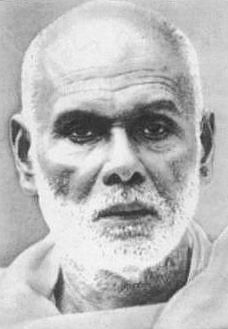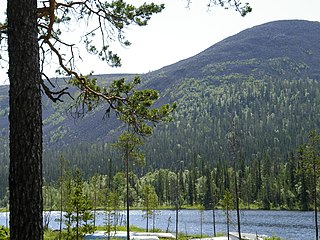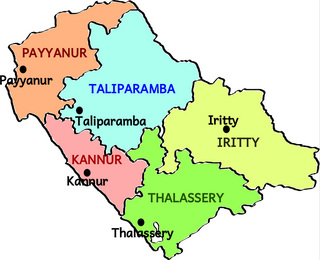Turk or Turks may refer to:

Sree Narayana Guru was a philosopher, spiritual leader and social reformer in India. He led a reform movement against the injustice in the caste-ridden society of Kerala in order to promote spiritual enlightenment and social equality. A quote of his that has become popular: "one caste, one religion, and one god for all men". He is the author of the Advaita poem Daiva Dasakam, which is one of the most used poem in Kerala for community prayer.

Kolari is a municipality of Finland at the Swedish border, which follows the Torne River, the longest free-flowing river in Europe.

The Kerala model refers to the practices adopted by the Indian state of Kerala to further human development. It is characterised by results showing strong social indicators when compared to the rest of the country such as high literacy and life expectancy rates, highly improved access to healthcare, and low infant mortality and birth rates. Despite having a lower per capita income, the state is sometimes compared to developed countries. These achievements along with the factors responsible for such achievements have been considered characteristic results of the Kerala model. Academic literature discusses the primary factors underlying the success of the Kerala model as its decentralization efforts, the political mobilization of the poor, and the active involvement of civil society organizations in the planning and implementation of development policies.

Thunchaththu Ramanujan Ezhuthachan was a Malayalam devotional poet, translator and linguist. He was one of the prāchīna kavithrayam of Malayalam literature, the other two being Kunchan Nambiar and Cherusseri. He has been called the "Father of Modern Malayalam", the "Father of Modern Malayalam Literature", and the "Primal Poet in Malayalam". He was one of the pioneers of a major shift in Kerala's literary culture. His work is published and read far more than that of any of his contemporaries or predecessors in Kerala.

Mattanur, also spelled Mattannur, is a town, municipality, and an aerotropolis in Kannur district, Kerala, India. Mattanur is about 27 km east of Kannur and Thalassery, two major towns of the district.
The caste system in Kerala differed from that found in the rest of India. While the Indian caste system generally divided the four-fold Varna division of the society into Brahmins, Kshatriyas, Vaishyas and Shudras, in Kerala, there existed only two varnas: Brahmins and Shudras, out of these four, while others were classified as Avarna. The Malayali Brahmins formed the priestly class. Brahmins labeled all other castes as "Sat-sudra", "Shudra" and "Avarna" based on their origin and ritual rank. The exception to this were Kings in Kerala like of Travancore and Cochin, who were ritually promoted to the status of Kshatriya by means of the Hiranyagarbha ceremony.

Ylläs, or Yllästunturi in Finnish, is a 718-metre (2,356 ft) high fell in the municipality of Kolari in Lapland Province of Finland. There are two villages near Ylläs: Äkäslompolo on the north side and Ylläsjärvi in the south. They are connected by an 11 km road, around the side of the fell. Both villages derive much of their income from tourism.
The Secondary School Leaving Certificate is a certification obtained by a student on successful completion of an examination at the end of study at the secondary schooling level in India. The SSLC is obtained on passing the grade 10 public examination, which is commonly referred to as 'class 10 board examinations' in India. SSLC is a common eligibility examination popular in many states in India, especially Kerala, Karnataka, and Tamil Nadu. The SSLC is also called as Secondary School Certificate (SSC) in Andhra Pradesh, Telangana, Maharashtra and also as High School Certificate (HSC) in Madhya Pradesh and also as Matriculation in many states of India.

Kolari railway station is located in the municipality of Kolari in the Lapland region of Finland, situated almost 3 km (1.9 mi) northeast of Kolari center, in Ylläsjokisuu. It is the northernmost railway station in Finland, located 800 km (500 mi) north of Helsinki Central railway station. The railway track extends 18 km (11 mi) further north to the Rautuvaara railway yard but this section is disused - the Rautuvaara iron ore mine closed in 1989.
Attar or Attoor is an essential oil or perfume.
Kalladi or Kallady may refer to:

Neyyattinkara Vasudevan was a Carnatic music vocalist from Kerala in south India. The Padmasree-winning Carnatic vocalist and disciple of Semmangudi Srinivasa Iyer and Ramnad Krishnan, he combined tradition and innovation in his widely acclaimed career. Vasudevan is famous as being one of the first from the Dalit community to excel in the field which was previously the preserve of the upper castes.
Paul Chirakkarode was a noted Malayalam- and English-language author, social critic, orator, and human rights activist. The author has been considered one of the pioneers of Dalit Literary Movement in India.
Padmanabhan Gopinathan is an Indian master weaver of handloom textiles and the founder of Eco Tex Handloom Consortium, an organization promoting handloom weaving in Manjavilakom, a small hamlet in Thiruvananthapuram, in the south Indian state of Kerala. Under the aegis of the organization, he provides employment to over 1800 women in the village. The Government of India awarded him the fourth highest civilian honour of the Padma Shri, in 2007, for his social commitment and his contributions to the art of weaving.

Iritty taluk is one of five taluks in Kannur district of Kerala, India. Iritty was established as a taluk in March 2013 when UDF government declared new 12 taluks for the state. Iritty taluk borders with Taliparamba taluk in the north, Thalassery taluk in the west and Karnataka state towards the east. It comprises Iritty municipality, parts of Mattannur municipality and 11 surrounding panchayats.
This page is based on this
Wikipedia article Text is available under the
CC BY-SA 4.0 license; additional terms may apply.
Images, videos and audio are available under their respective licenses.








